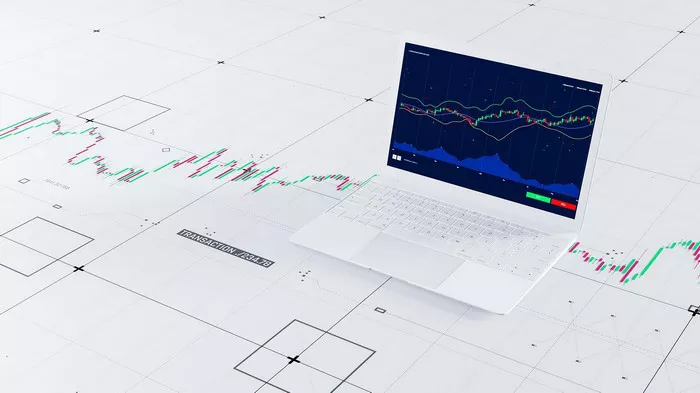Forex trading, or foreign exchange trading, is the act of buying and selling currencies with the aim of making a profit. It is one of the largest and most liquid financial markets in the world, with a daily trading volume exceeding $6 trillion. The allure of forex trading lies in its potential for high returns, but it also comes with significant risks. This article will explore how much you can realistically make trading forex, the factors that influence profitability, and the strategies that can help you succeed.
Understanding Forex Trading
What is Forex Trading?
Forex trading involves the exchange of one currency for another. Traders speculate on the price movements of currency pairs, such as EUR/USD or GBP/JPY, with the goal of buying low and selling high.
Market Participants
Retail Traders: Individual traders who trade forex through brokers.
Institutional Traders: Large financial institutions, such as banks and hedge funds, that trade on behalf of clients or for proprietary purposes.
Central Banks: National banks that influence currency values through monetary policy.
Corporations: Companies that engage in forex trading to hedge against currency risk.
Key Concepts
Currency Pairs: Forex trading involves trading currency pairs, such as EUR/USD (Euro/US Dollar) or USD/JPY (US Dollar/Japanese Yen).
Pip: The smallest price move that a given exchange rate can make, typically 0.0001 for most currency pairs.
Leverage: Borrowed capital that allows traders to increase their position size, amplifying both potential profits and losses.
Spread: The difference between the bid (buy) and ask (sell) price of a currency pair.
Factors Influencing Forex Trading Profits
Market Knowledge
Understanding the forex market, including economic indicators, geopolitical events, and market sentiment, is crucial for making informed trading decisions.
Trading Strategy
A well-defined trading strategy helps traders identify entry and exit points, manage risk, and optimize returns. Common strategies include scalping, day trading, swing trading, and position trading.
Risk Management
Effective risk management is essential to protect capital and ensure long-term profitability. This includes setting stop-loss orders, managing leverage, and diversifying trades.
Psychological Factors
Emotional discipline, patience, and the ability to handle stress are critical for successful forex trading. Emotional decisions can lead to impulsive trades and significant losses.
Broker Selection
Choosing a reputable broker with competitive spreads, reliable execution, and robust trading platforms can significantly impact trading success.
Realistic Expectations for Forex Trading Profits
Average Returns
The average return for retail forex traders varies widely. While some traders achieve annual returns of 20% or more, many others lose money. According to various studies, a significant percentage of retail forex traders (often cited as 70-80%) end up losing money.
High-Risk, High-Reward
Forex trading is inherently risky due to market volatility and leverage. While the potential for high returns exists, so does the potential for significant losses. It’s essential to approach forex trading with realistic expectations and a clear understanding of the risks involved.
Consistency Over Time
Consistency is key to long-term profitability in forex trading. Successful traders focus on steady, incremental gains rather than chasing large, risky profits. Building a sustainable trading strategy and sticking to it is crucial.
Calculating Potential Profits
Example Scenario
Let’s consider a hypothetical scenario to illustrate potential profits:
Account Size: $10,000
Leverage: 50:1
Trade Size: 1 standard lot (100,000 units)
Currency Pair: EUR/USD
Pip Value: $10 per pip
If the trader buys 1 standard lot of EUR/USD at 1.1000 and sells it at 1.1050, the profit would be:
Pip Movement: 1.1050 – 1.1000 = 50 pips
Profit: 50 pips * 10=500
Impact of Leverage
Leverage amplifies both potential profits and losses. In the above example, using 50:1 leverage allows the trader to control a 100,000positionwithonly2,000 of their own capital. While this can lead to significant profits, it also increases the risk of substantial losses.
Risk Management
To manage risk, traders often use stop-loss orders to limit potential losses. For example, setting a stop-loss at 20 pips would limit the loss to $200 in the above scenario.
Strategies for Maximizing Forex Trading Profits
Technical Analysis
Technical analysis involves analyzing price charts and using indicators to predict future price movements. Common tools include moving averages, RSI (Relative Strength Index), and Fibonacci retracements.
Fundamental Analysis
Fundamental analysis focuses on economic indicators, such as GDP, interest rates, and employment data, to assess a currency’s intrinsic value. Traders use this information to make informed trading decisions.
Risk-Reward Ratio
The risk-reward ratio measures the potential profit of a trade relative to its potential loss. A favorable risk-reward ratio, such as 1:2, means that the potential profit is twice the potential loss.
Diversification
Diversifying trades across different currency pairs and strategies can help spread risk and increase the chances of overall profitability.
Continuous Learning
The forex market is constantly evolving, and successful traders continuously educate themselves to stay ahead. This includes staying updated on market news, refining trading strategies, and learning from past trades.
Common Pitfalls to Avoid
Overtrading
Overtrading, or taking too many trades, can lead to increased transaction costs and emotional burnout. It’s essential to focus on quality trades rather than quantity.
Ignoring Risk Management
Failing to implement proper risk management can result in significant losses. Always use stop-loss orders and avoid risking more than a small percentage of your trading capital on a single trade.
Chasing Losses
Trying to recover losses by taking larger, riskier trades can lead to further losses. It’s crucial to stick to your trading plan and avoid emotional decisions.
Lack of Discipline
Discipline is vital for successful forex trading. This includes following your trading strategy, managing risk, and avoiding impulsive trades.
Tools and Resources for Forex Traders
Trading Platforms
Reliable trading platforms, such as MetaTrader 4 (MT4) and MetaTrader 5 (MT5), offer advanced charting tools, automated trading, and real-time market data.
Economic Calendars
Economic calendars provide information on upcoming economic events and indicators that can impact currency prices. Staying informed about these events is crucial for making informed trading decisions.
Educational Resources
Numerous educational resources, including online courses, webinars, and books, can help traders improve their skills and knowledge.
Demo Accounts
Demo accounts allow traders to practice trading with virtual money, providing a risk-free environment to test strategies and gain experience.
Conclusion
Forex trading offers the potential for significant profits, but it also comes with substantial risks. The amount you can make trading forex depends on various factors, including your trading strategy, risk management, market knowledge, and psychological discipline. While some traders achieve impressive returns, many others struggle to make consistent profits.
Realistic expectations, continuous learning, and effective risk management are essential for long-term success in forex trading. By understanding the market, developing a solid trading strategy, and avoiding common pitfalls, you can increase your chances of achieving profitability.
Remember, forex trading is not a get-rich-quick scheme. It requires dedication, discipline, and a willingness to learn from both successes and failures. With the right approach, forex trading can be a rewarding endeavor, but it’s crucial to approach it with caution and a clear understanding of the risks involved.
Whether you’re a novice trader or an experienced professional, staying informed and continuously refining your skills will help you navigate the complexities of the forex market and work towards achieving your financial goals.
Related topics:




























